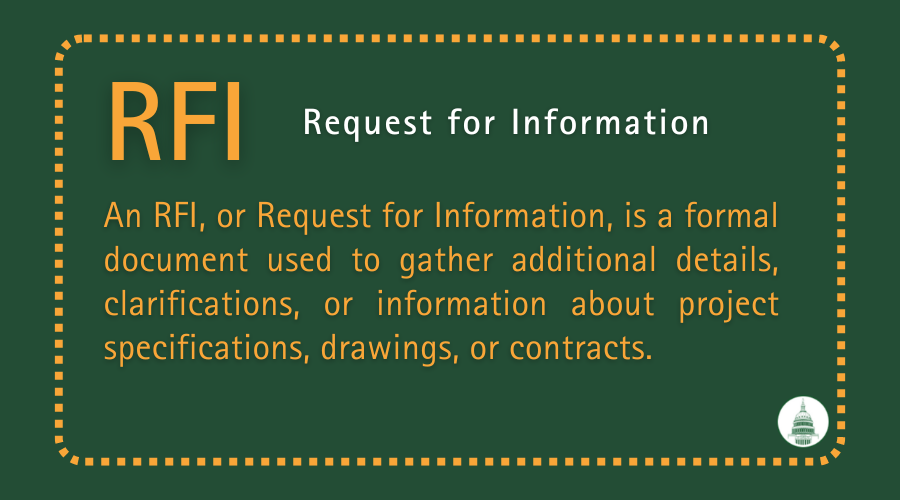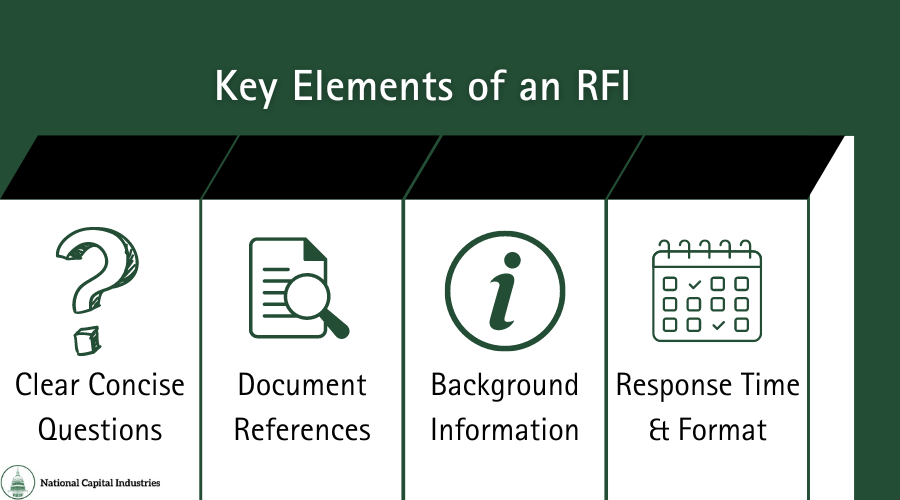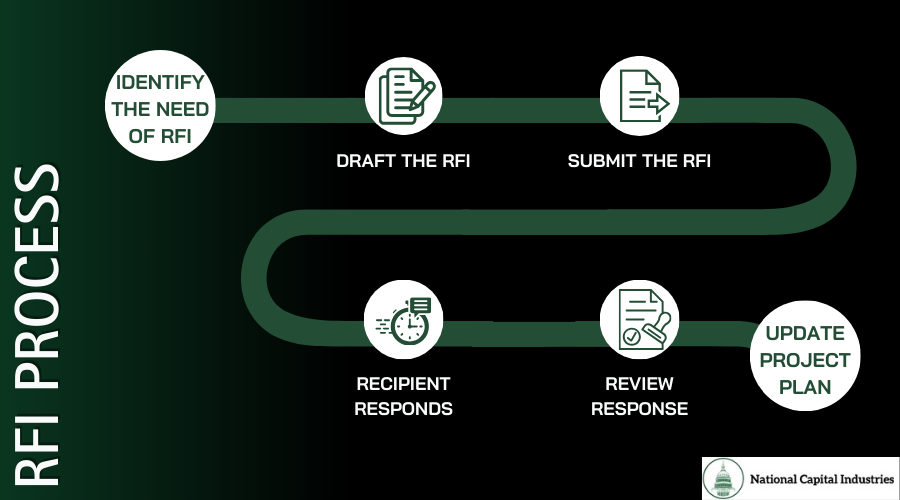
“An RFI, or Request for Information, is a formal document used by a party involved in a construction project to request additional information from another party.”
In construction, effective communication is crucial for managing complex projects. A key tool in this communication network is the Request for Information (RFI). When working on a construction project, you may encounter uncertainties or need additional information about project details, documented plans, site conditions, or the construction process. An RFI addresses these needs.
These requests can range from clarifying minor queries to providing comprehensive data related to the project. An RFI helps eliminate uncertainty and ensures consistency and clarity among all team members.
The involved parties typically include:
In this blog post, we will explore the mechanics of an RFI, its significance in the construction industry, the essential components of a good RFI, and the step-by-step process when an RFI is initiated. We will also discuss how National Capital Industries can streamline this process for you.

An RFI serves as a communication tool that retains the integrity of the original construction documentation while keeping the building process on track. Miscommunication or lack of clarity on project details can lead to costly mistakes, project delays, and even budget overruns, posing significant challenges to a construction project.
In the construction industry, time is money. A minor miscommunication can lead to major timeline setbacks. Opening an RFI is a way to preemptively address the potential information gap that may cause such delays. It ensures everyone understands the requirements clearly and is on the same page regarding structural details, site conditions, and other essential data. It also helps in managing change orders more efficiently.
Moreover, any construction project, big or small, involves significant financial investments. Unforeseen changes in designs or rework due to lack of clarity could shoot up project costs immensely. At the same time, they may compromise on the quality or safety standards. With RFIs, the construction team can avoid these costly mistakes and lay the ground for a smooth, hassle-free construction phase.
The RFI is not just a document, but an effective project management tool that can save a construction project from numerous complications. Understanding its significance is the first step toward leveraging its benefits.
Apart from the RFI, you might also stumble upon the terms RFQ (Request for Quotation) and RFP (Request for Proposal) in the construction industry:
In the following sections, we get into the nitty-gritty of RFI composition and process.

A Request for Information can be thought of as a formal question or series of questions sent from one project party to another. While preparing an RFI, make sure the following elements are considered:
Another best practice in the RFI process is utilizing construction management software tools. Project management software can simplify RFI management to a great extent. It ensures that all RFI documents are kept in a central location accessible to relevant project team members.
These digital platforms maintain regularity, allowing the construction team to track the progress of RFIs, ensuring responses are delivered in a timely and decisions regarding the construction project are made accurately and promptly.
Having the right tools and a well-drafted RFI enhances the whole construction process. It enables project managers, general contractors, and all important stakeholders to anticipate potential roadblocks long before they become serious issues.

Navigating through the RFI process in the construction industry is no small venture. Given its intricate nature, it requires systematic management and meticulous attention to detail. Here we walk you through a step-by-step breakdown of the RFI process:
The RFI process is a collaborative effort involving diverse professionals in the construction project. A project manager oversees the process, ensuring regular follow-ups and maintaining a constant flow of communication. The general contractor takes on an active role, often drafting and submitting the RFI’s. Structural engineers and other specialized contractors may also be involved in solving complex issues that require their expertise.
Responding promptly to requested information is critical to keep a construction project on schedule. Delayed or inadequate responses can lead to project delays, requiring changes to the construction contract and creating additional change orders.
Mastering the RFI process can drive a project to success, but having an experienced hand to guide can cut out the trial and error. See how National Capital Industries can facilitate this process for you.

When it comes to managing RFIs, expertise and experience can make all the difference. National Capital Industries, with over 60 years of experience in the construction industry, is adept at providing the necessary support for this process.
From our vast inventory of construction equipment to our knowledgeable staff, we’re strategically positioned to assist with RFIs. Our inherent understanding of the construction project and construction contract intricacies enables us to provide precise and timely input regarding construction materials, methods, safety equipment, and more.
Email your construction RFI to our team at NatCap, and we will provide the resources necessary for you to get answers from Government entities.
The benefits of having a streamlined and robust RFI process cannot be underestimated. National Capital Industries can support and facilitate the process, helping you save time, reduce project costs, and maintain project quality.
Get in touch with us online and let’s work together to ensure a smooth construction project from start to finish.
Streamline your RFI with NatCap, where expertise and efficiency overlap.